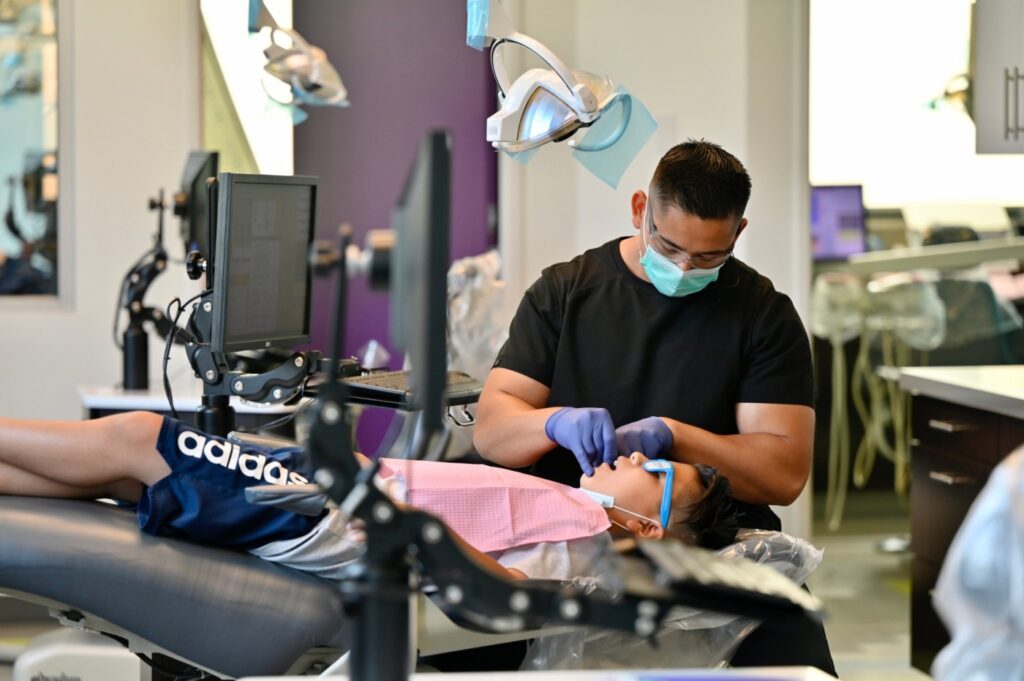
The COVID-19 pandemic dwarfs any other public health crisis in recent memory.
During the past two years, we saw how regulations made our system less nimble and responsive to unexpected events. Professional licensing regulations feature prominently among them because they reduce the supply of health care professionals and block them from providing care where they are needed most.
Thankfully, some regulations were relaxed, suspended, or removed so that health care professionals could provide care to more patients. It would be tragic if lawmakers didn’t learn from the experience so we can better weather future pandemics.
Since early 2020, many states, including California, temporarily allowed various health professionals who are licensed out-of-state to provide in-person and telehealth services to their residents. Medicare and Medicaid began paying health care providers for services rendered to patients in states in which they are not licensed to practice if they held an equivalent license in another state.
As the national physician shortage plus a surge in COVID hospitalizations created a perfect storm, many medical schools allowed fourth year students to graduate early and start their residency programs. By doing this, governors and policymakers tacitly acknowledged that health profession licensing laws obstruct health care services. Sadly, it seems the California State Dental Board didn’t get the memo.
One of us, Joel Strom, is a general dentist in Los Angeles, California, a state with a dental health professional shortage and socioeconomic inequities in dental health services. It is common knowledge among California dentists that most are having a tough time hiring dental hygienists. Roughly 4 percent of dental hygienists retired from the workforce during the pandemic. A recent survey found 80 percent of dentists report difficulty hiring hygienists—six out of ten find it extremely difficult. Dentists must therefore provide hygiene services themselves, leaving less time to treat their dental surgical patients.
To counter the problem, Dr. Strom wants to hire a newly graduated dentist, but the State Dental Board’s lengthy and date uncertain process has prolonged the wait. This process has many steps, costs money, and leaves new graduates, their future employers, and patients completely in the dark as to when the long licensing process will finally conclude. The State Dental Board’s timeline to complete the licensing process can be longer today than in 1998, when Dr. Strom served as Board President—a time when online testing and instant results were not universally available.
An entire class of graduates took their National Board exams during their third year in dental school, their clinical exam in May 2022, and obtained their dental school diplomas in June 2022. The last step to state licensure is an internet-generated Law and Ethics exam, access to which is yet to be announced. One graduate inquiring about the timeline was told, “Be patient, everyone is still waiting, you haven’t missed anything.” The licensing board seems in no rush while patients wait for dental care.
One would expect the California Dental Board to have learned from the federal and state deregulatory measures taken during the COVID crisis, and relaxed burdensome and damaging regulations that delay aid to the state’s dental patients.
For example, the Board could have expedited the Ethics and Law portion of the process, perhaps giving the exam prior to graduation or at the same time students took the clinical exam nearly two months earlier. The Board could also have granted emergency temporary licenses to already retired or out-of-state licensed dentists. This crisis has only sharpened the need to act on some of these initiatives.
Dentists, like physicians, pledge to first do no harm. We should expect the same of dental health regulations. Unfortunately, licensing laws constrain the supply of new dentists and prevent other dental health care professionals from practicing to the full extent of their training, all to the detriment of patients. In many states dental hygienists cannot practice independently or offer patients the full range of services they are trained to provide.
Related Articles
Democrats are total hypocrites on election denialism
Housing factions use two state laws as weapons
Protect public and press access to police radio transmissions, pass SB 1000
Pass Senate Bill 519, decriminalize psychedelics
State Senate should spike AB 257
Thankfully, California is not one of those states. But California lawmakers can go further by permitting properly trained and certified dental therapists—allied dental professionals analogous to physician assistants—to serve patients. More than a dozen states have already authorized dental therapists. They provide affordable basic dental care to underserved communities. Regrettably, California is not among them.
We’ve all heard the saying, “A crisis is a terrible thing to waste.” Policymakers in Sacramento must reform the dental licensing process and expand the scope of practice of the allied dental professions lest crucial lessons from the public health crisis go to waste.
Jeffrey A. Singer, MD practices general surgery in Phoenix, AZ and is a senior fellow at the Cato Institute; Joel L. Strom, DDS practices general dentistry in Los Angeles, CA and is Former President of the California Dental Board
